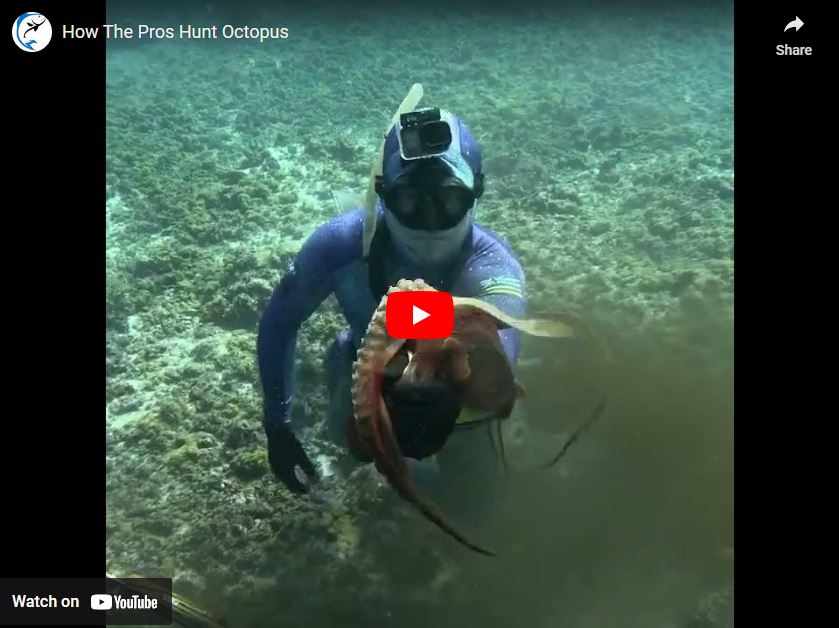Professional octopus hunters often employ a combination of experience, skill, and specialized techniques to successfully catch octopus. Here are some methods that professionals might use:
- Locating Habitats: Experienced octopus hunters know where to find octopus habitats. These might include rocky coastlines, coral reefs, kelp forests, and areas with plenty of crevices and hiding spots where octopus can camouflage themselves.
- Observation: Professionals often spend time observing the behavior of octopus in their natural habitat. They look for signs such as discarded shells, mounds of shells outside dens, or evidence of recent activity like fresh ink clouds or disturbed sand.
- Hand Fishing: Hand fishing involves diving or snorkeling in octopus-rich areas and manually searching for octopus hiding in crevices, holes, or dens. Once located, the hunter carefully reaches in and grabs the octopus, being mindful of its sharp beak and powerful tentacles.
- Using Tools: Some professional hunters use tools like spears, hooks, or specialized traps to catch octopus. These tools can help reach into tight spaces or lure octopus out of their hiding spots.
- Trapping: Setting traps is another common method used by professionals. Octopus traps are designed to lure the octopus inside with bait and then prevent them from escaping. Traps may be made of wire mesh or other materials and are placed in strategic locations where octopus are known to frequent.
- Night Diving: Octopus are often more active at night, so some professionals prefer to hunt them after dark. Night diving requires specialized equipment and techniques but can be rewarding for those willing to venture into the water after sunset.
- Respect for the Environment: Professional octopus hunters understand the importance of sustainable fishing practices and respect for the marine environment. They adhere to local regulations and guidelines to ensure the long-term health of octopus populations and the ecosystems they inhabit.
- Handling and Dispatching: Once caught, professionals handle octopus carefully to avoid injury to both themselves and the animal. Octopus are dispatched quickly and humanely using techniques such as severing the spinal cord or brain to ensure minimal suffering.
- Processing and Cooking: After catching octopus, professionals may clean and prepare them on-site or bring them back to shore for processing. Octopus can be cooked in a variety of ways, including grilling, boiling, frying, or incorporating them into various dishes in culinary traditions around the world.
Overall, professional octopus hunting requires a combination of knowledge, skill, and respect for the natural world. By employing sustainable practices and responsible harvesting techniques, professionals can help ensure the continued availability of octopus for future generations.
